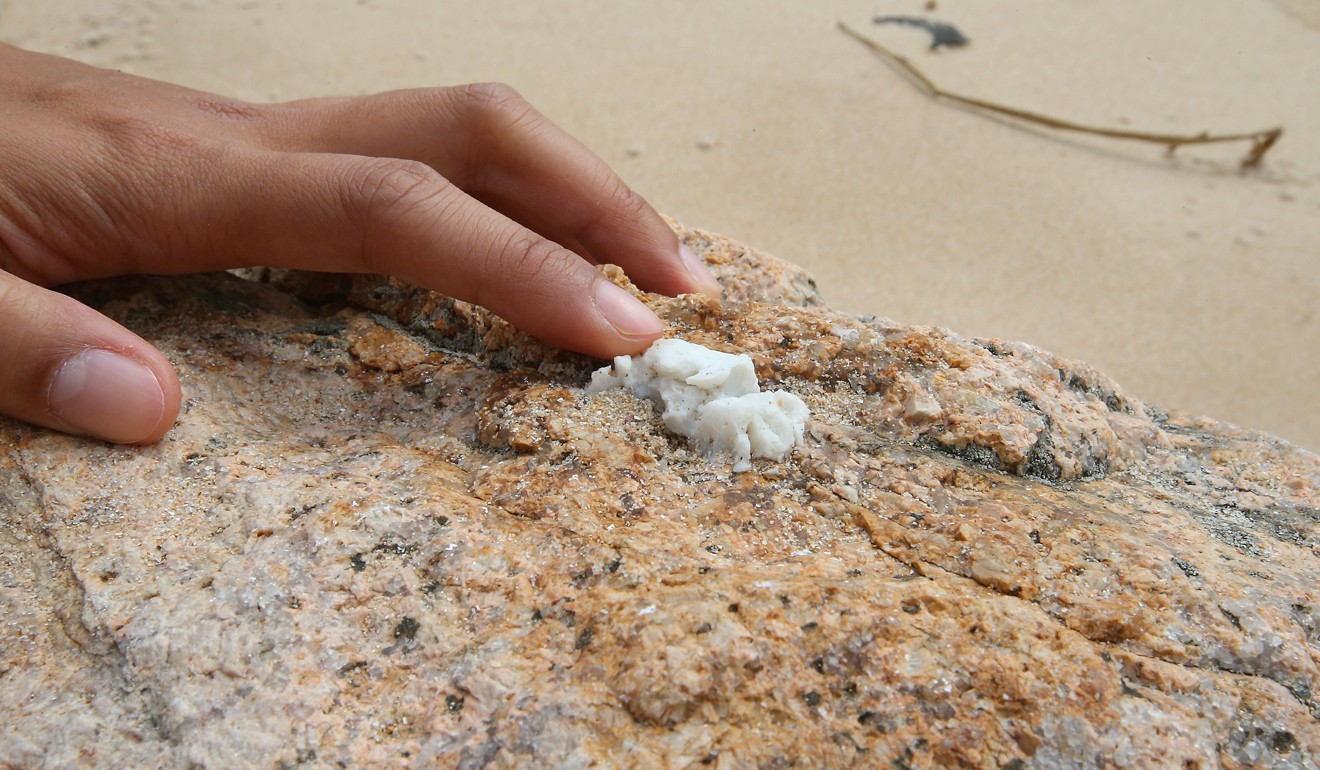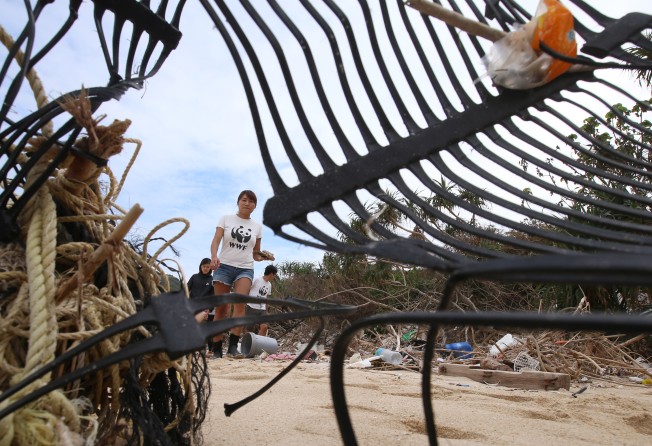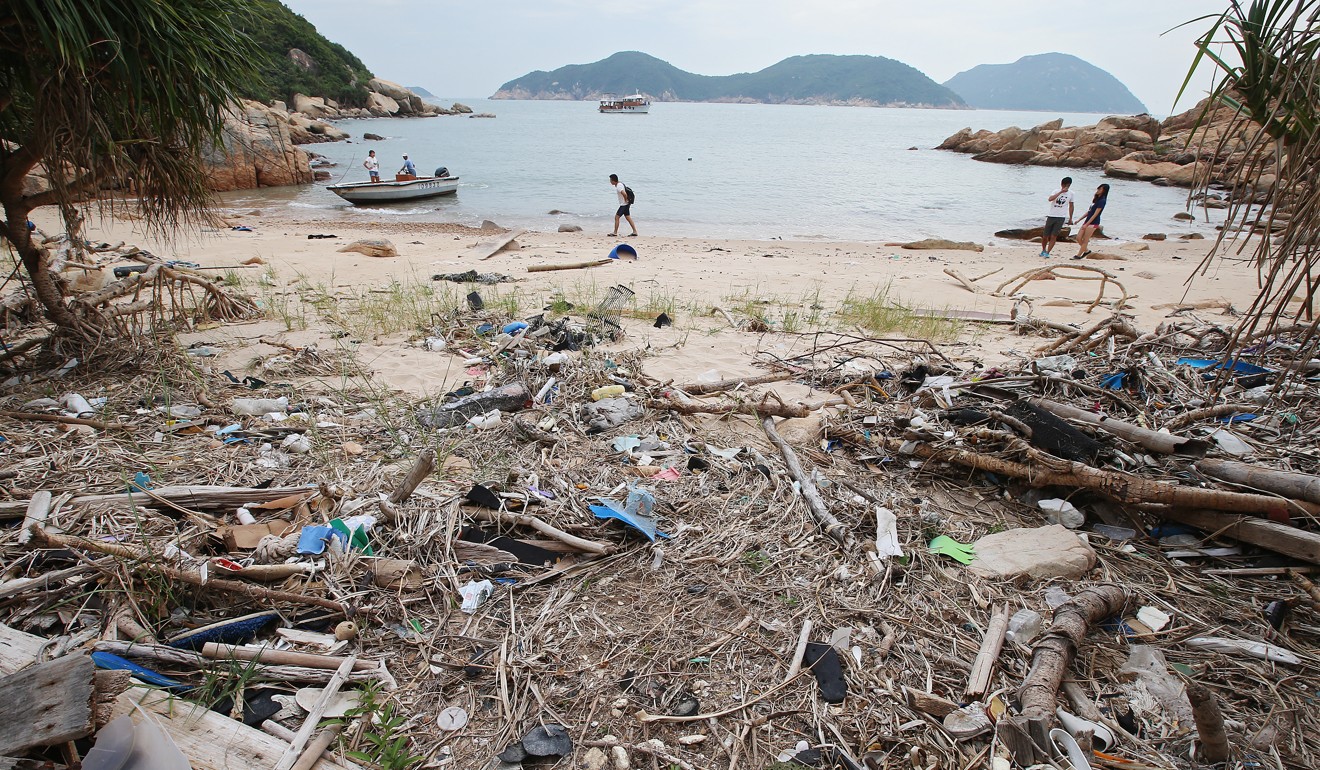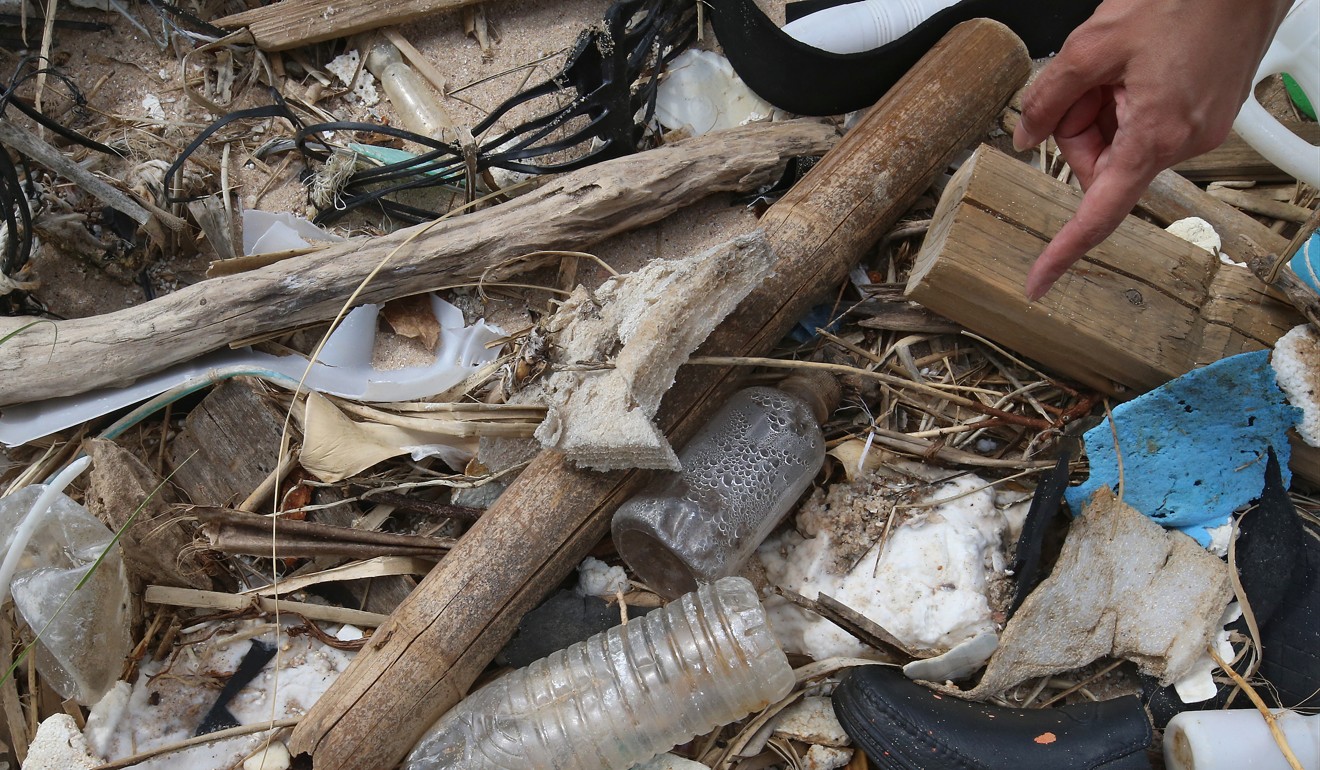
Officials urged to clean up remote Hong Kong islands and waters before marine park designation
Green group’s visit to littered South Soko Island three months after large-scale collision of two vessels prompts call for stepped-up efforts

Protection of a future marine park in Hong Kong’s southern waters should be stepped up, a green group urged after its inspection found piles of coastal litter including remains of a palm oil spill three months ago.
A visit to the Soko Islands last Monday by WWF Hong Kong revealed dozens of sticky, untreated clumps of the oil left after a collision between two vessels in the Pearl River Delta in August as well as heaps of trash ranging from food packaging to plastic disposables that had washed ashore.
The government plans to designate the islands, located southwest of Lantau Island, and surrounding waters a marine park by 2019. The idea is to protect the habitat of the rare Chinese white dolphin, the population of which has dwindled in Hong Kong waters from 87 in 2010/11 to 47 in 2016/17, according to the Agriculture, Fisheries and Conservation Department.

“The waters off the Soko Islands are the only place in Hong Kong that both Chinese white dolphins and finless porpoises call home,” Samantha Lee Klaus, a WWF oceans conservation manager, said.
“The washed-up marine litter shows a lot of it is still in the sea, potentially choking, entangling and killing sea animals,” she added. “It is a difficult but necessary task for the government to clean up the coastline before it is designated a marine park.”
It is a difficult but necessary task for the government to clean up the coastline before it is designated a marine park
Lee added that remote islands like the Soko, a two-hour boat ride from Central, have been neglected in government clean-ups in the past. Such efforts have so far removed more than 200 tonnes of palm stearin mainly in public beaches, according to the Leisure and Cultural Services Department.
University of Hong Kong geography professor Dr Ng Cho-nam said although the site had yet to be declared a marine park, officials should step up their protection of its ecological value.
“We should adopt a proactive rather than a reactive approach,” Ng said. “It would be reactive to conserve it only after it has been damaged.”
“There are certain regulations that can only be authorised by the Country Parks Ordinance, like a commercial fishing ban. But such legal backing isn’t required to clean up the sea. The government should do as much as they can.”
Official statistics indicate the amount of marine refuse collected by the government has increased steadily from around 15,000 tonnes in 2013 to more than 16,000 tonnes last year.
WWF oceans conservation project manager Patrick Yeung Chung-wing said southwestern monsoon winds in the summer had brought “relatively more trash from the Pearl River to Hong Kong’s shores while domestic waste washes ashore year-round”.

Yeung added that the diamond-shaped bite marks found on some of the washed-up plastic waste showed sea creatures had tried to eat them and this endangered their health.
A government spokesman said the Food and Environmental Hygiene Department had hired a contractor to clean up the bays off the Soko Islands on October 31 and that it would take some time to complete the task given the vastness of the coastal areas.

“Last month, we carried out a successful experiment with Marine Department to collect marine litter with trawl nets imported from France,” Yeung said. “It nets the refuse as well as oil at the top 0.7 meter of the water’s surface, so it won’t catch any marine life inadvertently.”
He said the trawl nets, pulled by two boats moving in parallel, could effectively remove marine refuse and urged the government to use them for sea cleaning.